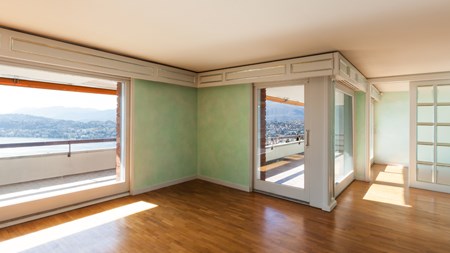Tips for new landlords including whether to furnish the property, finding a great tenant and getting rid of a not so great tenant.
Property investors who plan on letting out their property often have questions. Catherine de Villiers, rental consultant at Jawitz Properties, has a few simple tips to help new landlords.
To furnish or not to furnish?
Letting an unfurnished property
Unfurnished accommodation tends to attract longer term tenants. Because they have invested in moving their furniture into the new premises, they are more inclined to settle for a longer period. Tenants are usually happier living with their own furniture. A twelve-month lease is the norm, carrying a one-month deposit. At the higher end of the market, where rentals can soar to R80 000 to R100 000 per month or more, you could negotiate a higher deposit of two months’ rental.
The deposit should be held in an interest-bearing account by the landlord and later paid out to the tenant but only released after outstanding water and electricity and other costs and damages have been deducted.
Letting a furnished property
Furnished properties attract tenants such as corporate expats, contract workers, students, singles and the like, all of whom look for reasonably short-term leases of six to twelve months. Because the property is furnished, a 20-25% premium can be applicable, dependent on the quality of furnishings and decor. One needs to remember that there will be the ongoing upkeep of furnishings, and the risk of theft and of tenants who fail to look after the furniture and fittings. Bear in mind that your insurer may charge more because you are relying on someone else to be responsible for the contents of the unit. At the high end of the market, there is a customary two-month deposit required for fully-furnished rentals.
Finding a great tenant
The biggest risk you will face as a landlord is none payment by a tenant. It is therefore critical to use a reputable agency or property management company to find the perfect tenant for your property. The agency should do reference, credit and background checks, as well as provide a lease agreement that protects the owner’s interests.
Investing in a property is no different to investing in unit trusts or shares – it needs to be well thought out and managed carefully, by experts. Ensure you allow professionals to manage your assets.
It is also very important to ask a market related rental amount, based on expert advice. Otherwise you run the risk of your property sitting empty while you pay for the running costs as well as the bond payments. It is far better to find a tenant at a slightly lower rental amount, rather than have your property sitting empty for months on end.
Tenants may only be evicted through a Court of Law when there has been a material breach of the lease. This could be for nonpayment of the rent and the failure to remedy the breach, or repeated non-compliance with body corporate rules (such as excessive noise) or home owners’ association rules.
In the event of a tenant’s continued material breach, your property manager will issue Letters of Demand, which has to be done within a certain time period. Should there be no attempt by the tenant to rectify the breach, a letter cancelling the lease can be issued. If the tenant continues to ignore the cancellation letters, your next step would be the legal route, which can be complicated, time-consuming and costly.



